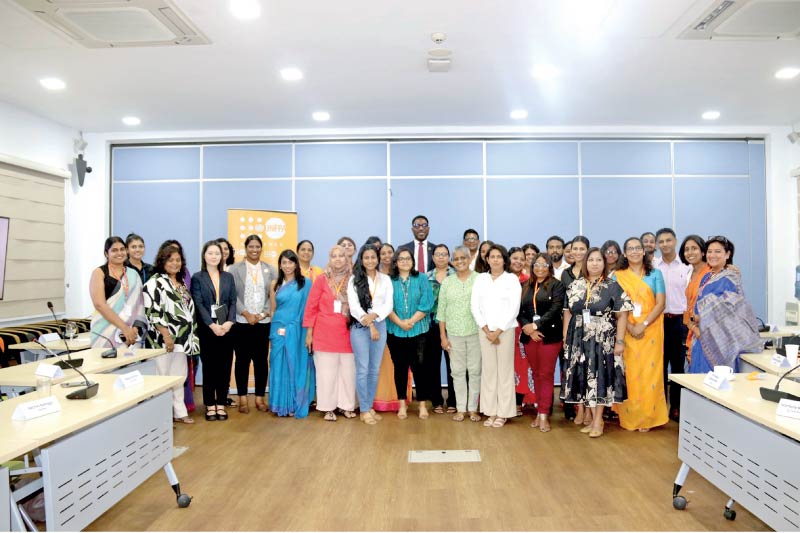Thursday Feb 26, 2026
Thursday Feb 26, 2026
Monday, 7 April 2025 04:59 - - {{hitsCtrl.values.hits}}

The United Nations Population Fund (UNFPA) Sri Lanka successfully hosted a roundtable dialogue on 3 April.
The event brought together key private sector stakeholders to foster corporate commitment and investment in women’s empowerment and reproductive health within the workplace. This roundtable served as a precursor to the upcoming regional launch of the Coalition for Reproductive Justice in Business (CRJB) scheduled for May 2025.
The roundtable convened high-level representatives from diverse industries, including Directors of Sustainability, CSR, and Diversity, Equality, and Inclusion (DEI) focal points. The event underscored the value of investing in women’s health and well-being in the workplace. Companies that integrate SRHR considerations into their operations benefit from improved workforce productivity and retention, reduced healthcare costs, and increased operational efficiency. Furthermore, these investments enhance brand reputation, position organisations as employers of choice, and demonstrate a commitment to social responsibility and sustainable development.
UNFPA Representative Kunle Adeniyi said: “Ensuring that women’s health and reproductive rights are prioritised in corporate policies and workplace practices is not just a moral obligation — it’s a strategic imperative. When companies invest in gender-responsive initiatives, they create healthier, more inclusive work environments that drive productivity, innovation, and sustainable growth. UNFPA is committed to working alongside the private sector to build workplaces that support and empower women at every stage of their professional and personal lives.”
United Nations Global Compact (UNGC) Executive Director Rathika De Silva emphasised the critical role of women’s health and reproductive rights in achieving the ten principles of the UN Global Compact and promoting women’s economic participation in the workplace. He notes that businesses should prioritise these aspects to foster a more inclusive and equitable work environment. De Silva highlights that integrating such initiatives not only aligns with global sustainability goals but also enhances corporate performance by attracting diverse talent and improving employee well-being. He further advocates for setting ambitious targets in areas like gender equality, asserting that proactive measures in these domains are essential for driving meaningful progress towards the Sustainable Development Goals